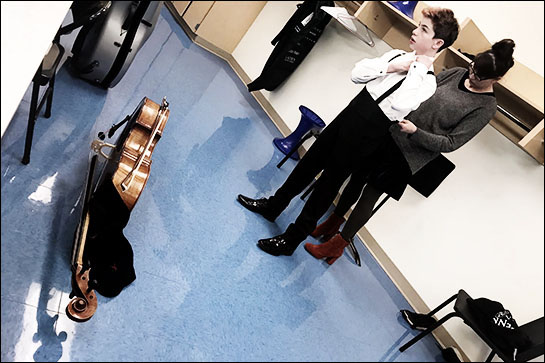Here’s how I became a writer. I started writing when I was six and wrote nonstop, about things no one cared about.
Nineteen years later I thought, I like to write, I should get paid for this.
So I went to graduate school for writing, and the first day, the teacher said, “If any of you can imagine yourselves doing anything but writing, you should do that. Writing is hard, and lonely and full of rejection and you’ll never make any money.”
I stayed in school (I had a fellowship – who can give up free money?) but after school I got a job in marketing at a Fortune 500 company. And I made a lot of money.
But I kept writing. For ten more years. I wrote after work, and when my jobs were slow, I wrote at work. I used my vacation time to send writing to publishers who rejected me. But then they stopped rejecting me. And slowly, I realized that I could support my family with my writing. So I took the leap. (And, note, a huge salary cut.)
If you think you want to be a writer, first pay heed to my teacher’s advice. If you still want to write, remember that most writers spend years and years writing before they get published in a national magazine. So keep your day job until you’re sure you won’t starve. Here are three other things to do as well:
1. Rethink your ideas about time and space.
The best way to build up a freelancing career is to have another job with a steady paycheck, to support you while you’re honing your skills as a freelancer. This means that you need to be able to write in small, disjointed spurts of time, because you have a day job, and responsibilities, and you don’t have three days to craft each sentence.
But maybe you’ve already quit your day job as an expression of commitment to the freelancing. That’s fine, but maybe you don’t have a lot of money. Writers do not need their own pristine office and gorgeous PowerBook. I wrote for years on my kitchen counter because our New York City apartment didn’t have room for a desk. It wasn’t great, but it was fine.
2. Accept self-promotion as a way of life.
No one likes to do self-promotion, but the people who really, really want to work for themselves force themselves to be good at it. There is no one to get work for you except you. And it takes a lot of time to get the word out about what you do and why you do it well.
There are a ton of freelancers who can do a competent job at any given job. The freelancer who gets the work is the one who is best at marketing herself. So don’t talk about the injustice of the world and how you are too much of an artist to promote yourself. Instead, set aside 40% of your day for self-marketing. I used to think that as I got to be a better writer I would do less self-promoting. But in fact, it never happens, as far as I can tell. It’s forty percent forever.
3. Give up the notion that there’s one, perfect way to do it.
Not that the perfect word doesn’t exist. But it’s in the eye of the beholder. Who, in this case, is your editor. But look, you’re not writing the next Magna Charta. Maybe you’re writing a how-to piece for a men’s magazine. Or, if you’re lucky, you’re writing some travel piece about a hotel that’s giving you free lodging. What I’m saying here is that the stuff you’re writing isn’t so precious that the editor can’t rip it to shreds and rewrite it in his voice.
So what? You still get a check. You still get to say you were published in that magazine. Don’t write for that editor again if it’s so upsetting to you. But remember that the best money does not come from the best assignments, and there’s a reason for that.
So be flexible. I have found that when I took assignments that I didn’t like, I still learned a lot, even if the editor didn’t love my word choice. Focus on the learning, and the side benefit will be that you’ll have better relationships with editors. For a freelancer, the steady work comes from a combination of good work and good relationships.
Other posts from “A Week in Journalism” series:
Why do journalists misquote everyone (and how I met my husband)
How to move from print journalism to online journalism
Seven ways to get an agent’s attention (by my agent, Susan Rabiner)









